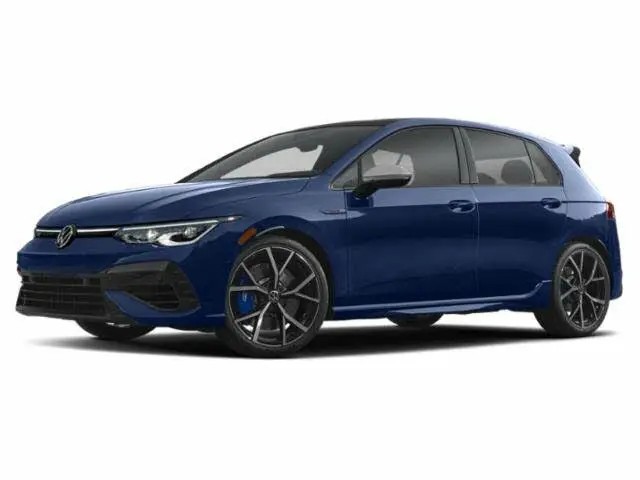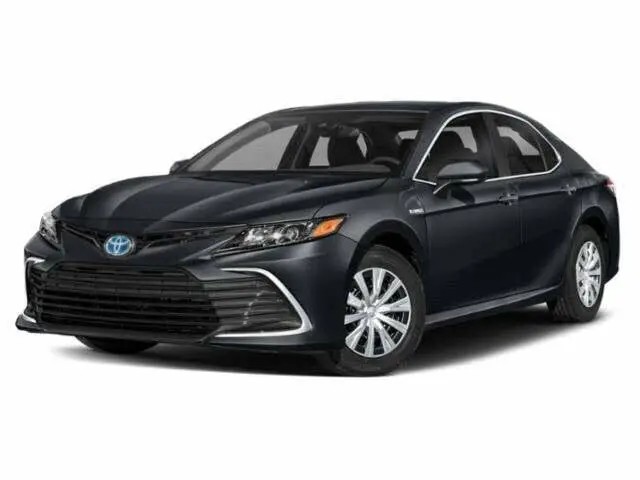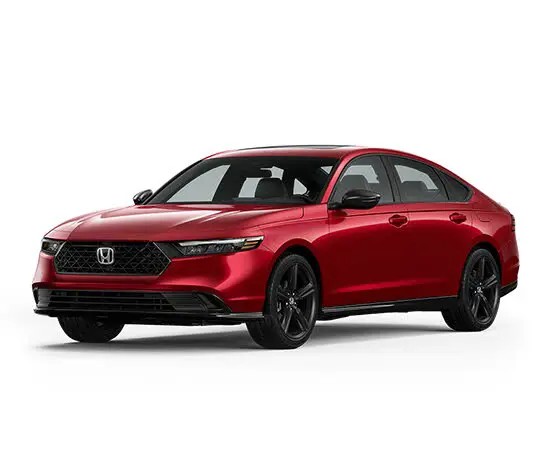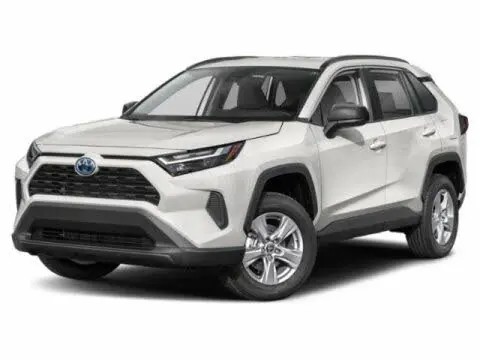In an era where fuel costs fluctuate and environmental consciousness is on the rise, the question “What Cars Are Good On Gas?” is more pertinent than ever. Choosing a fuel-efficient vehicle is not just a financially savvy decision, but also a step towards reducing your carbon footprint. As experts in auto repair and vehicle diagnostics at cardiagnosticnearme.com, we understand the importance of making informed choices when it comes to your vehicle. This guide delves into the world of fuel-efficient cars for 2024, highlighting top models that excel in gas mileage, affordability, and features that cater to the modern driver.
Understanding and Maximizing Fuel Efficiency
Fuel efficiency, at its core, is about how effectively a vehicle converts fuel energy into motion. It’s typically measured in miles per gallon (MPG) in the US, indicating how many miles a car can travel on one gallon of gasoline. A higher MPG figure directly translates to less fuel consumption and lower running costs.
Why Gas Mileage Matters
Good gas mileage is crucial for several compelling reasons:
- Cost Savings: Fuel is a significant ongoing expense of vehicle ownership. Cars with better gas mileage reduce your trips to the pump and save you money over the vehicle’s lifespan.
- Environmental Impact: Fuel-efficient cars burn less gasoline, emitting fewer greenhouse gases like carbon dioxide. This contributes to cleaner air and a healthier environment.
- Energy Independence: Reducing our collective fuel consumption lessens our dependence on fossil fuels, a vital step towards energy independence and sustainability.
- Resale Value: Fuel efficiency is a desirable attribute in the used car market. Vehicles known for good gas mileage often hold their value better over time.
How Fuel Efficiency is Evaluated
The Environmental Protection Agency (EPA) sets the standard for measuring and reporting fuel efficiency in the United States. They conduct standardized tests that simulate both city and highway driving conditions to determine MPG ratings. These tests are crucial for providing consumers with a reliable benchmark for comparing vehicle fuel economy.
It’s important to note that EPA ratings are estimates. Actual fuel economy can vary based on driving habits, vehicle maintenance, and environmental conditions. Factors like aggressive acceleration, speeding, heavy braking, and neglecting regular maintenance can significantly reduce your car’s MPG. Conversely, smooth driving, consistent speeds, and proper vehicle upkeep can help you achieve or even exceed the EPA estimates.
Key Factors Influencing Fuel Efficiency
When considering “what cars are good on gas,” several factors come into play beyond just the make and model. Understanding these elements will empower you to choose a vehicle that truly meets your fuel efficiency goals.
Vehicle Type and Size
Generally, smaller and lighter vehicles are inherently more fuel-efficient. Compact cars and sedans typically offer better gas mileage than larger SUVs and trucks. If your primary need is commuting or carrying a few passengers, a smaller vehicle is often the most economical choice. However, advancements in automotive engineering are narrowing this gap, with some SUVs and larger cars now offering surprisingly good fuel economy thanks to hybrid technology and efficient engine designs.
Engine and Powertrain Technology
The engine is the heart of a vehicle’s fuel efficiency. Modern cars employ various technologies to maximize MPG:
- Hybrid Powertrains: Combining a gasoline engine with an electric motor and battery, hybrids excel in fuel economy, especially in city driving where regenerative braking recharges the battery.
- Electric Vehicles (EVs): EVs eliminate gasoline consumption entirely, running solely on electricity. While not “good on gas” in the traditional sense, they are the ultimate in fuel efficiency (measured in MPGe – miles per gallon equivalent).
- Turbocharging and Downsizing: Smaller, turbocharged engines can deliver the power of larger engines while consuming less fuel.
- Direct Fuel Injection: This technology precisely injects fuel directly into the engine’s combustion chamber, improving efficiency and power.
- Variable Valve Timing: Optimizes engine performance and efficiency across different driving conditions.
Aerodynamics and Vehicle Weight
Aerodynamics plays a significant role, especially at highway speeds. Sleek, streamlined designs reduce air resistance, allowing the car to move more easily and use less fuel. Vehicle weight is also a critical factor. Lighter cars require less energy to accelerate and maintain speed, leading to better MPG. Automakers are increasingly using lightweight materials like aluminum and high-strength steel to reduce vehicle weight without compromising safety.
Driving Habits and Conditions
Even the most fuel-efficient car can suffer from poor gas mileage if driven inefficiently. Aggressive driving habits, such as rapid acceleration and hard braking, waste fuel. Stop-and-go traffic, hilly terrain, and extreme weather conditions can also negatively impact fuel economy. Adopting smooth driving techniques, maintaining consistent speeds, and planning routes to avoid heavy traffic can significantly improve your real-world MPG.
The Future of Fuel Efficiency: Innovations and Trends
The quest for improved fuel efficiency is a driving force in the automotive industry. Ongoing innovations promise even more economical and environmentally friendly vehicles in the years to come.
Advancements in Engine Technology
Combustion engine technology continues to evolve. Expect to see further refinements in engine design, fuel injection systems, and materials to squeeze even more efficiency out of gasoline engines. Developments in alternative fuels, such as biofuels and hydrogen, also hold potential for reducing reliance on traditional gasoline.
Electrification and Hybridization
The trend towards electrification is undeniable. Hybrid vehicles are becoming increasingly sophisticated and affordable, offering a bridge to fully electric driving. Plug-in hybrids, with larger batteries and longer electric ranges, provide even greater fuel savings. The rapid growth of the electric vehicle market signals a fundamental shift in how we power our cars, with fuel efficiency taking center stage.
Government Regulations and Incentives
Government regulations worldwide are pushing automakers to produce more fuel-efficient vehicles and reduce emissions. Stricter fuel economy standards and emissions targets are driving innovation and shaping the future of car design. Furthermore, government incentives, such as tax credits and rebates for hybrid and electric vehicles, are encouraging consumer adoption of fuel-efficient options.
Top Fuel-Efficient Cars for 2024: Your Best Choices
Now, let’s get to the core question: “what cars are good on gas?” Here are some of the top fuel-efficient cars for 2024, categorized by vehicle type:
Compact Cars: MPG Champions
1. Toyota Prius: The Toyota Prius remains the gold standard for fuel efficiency in the hybrid category. Known for its exceptional MPG, the Prius offers a comfortable ride and hatchback versatility, making it ideal for daily commuting and eco-conscious drivers.
 __wf_reserved_inherit
__wf_reserved_inherit
2. Honda Civic: The Honda Civic consistently ranks high for fuel economy in the non-hybrid compact class. Its efficient engine and aerodynamic design deliver impressive MPG, combined with Honda’s reputation for reliability and a sporty driving feel.
3. Hyundai Ioniq: The Hyundai Ioniq is available in hybrid, plug-in hybrid, and electric versions, offering a range of fuel-efficient options to suit different needs. The hybrid Ioniq is particularly noteworthy for its excellent gas mileage and spacious interior.
 __wf_reserved_inherit
__wf_reserved_inherit
4. Volkswagen Golf: The Volkswagen Golf, with its turbocharged engine, offers a compelling combination of performance and fuel efficiency. Its compact size and refined driving dynamics make it a fun and economical choice.
5. Mazda 3: The Mazda 3 stands out for its stylish design and engaging driving experience, without compromising on fuel economy. Mazda’s Skyactiv technology contributes to impressive MPG in both sedan and hatchback versions.
Midsize Cars: Efficient and Spacious
 __wf_reserved_inherit
__wf_reserved_inherit
1. Toyota Camry Hybrid: The Toyota Camry Hybrid is a top pick in the midsize sedan segment for fuel efficiency. It combines Toyota’s hybrid expertise with the Camry’s renowned reliability and spaciousness, delivering excellent MPG without sacrificing comfort or performance.
2. Kia K5 Hybrid: The Kia K5 Hybrid (formerly Optima) offers a stylish and feature-rich option in the midsize hybrid category. It boasts impressive fuel economy, a comfortable ride, and a modern interior, making it a strong contender for fuel-conscious families.
 __wf_reserved_inherit
__wf_reserved_inherit
3. Honda Accord Hybrid: The Honda Accord Hybrid is another excellent midsize hybrid sedan, known for its refined driving experience, spacious interior, and impressive fuel economy. It combines hybrid efficiency with the Accord’s reputation for quality and reliability.
SUVs: Fuel Efficiency in a Larger Package
1. Ford Escape Hybrid: The Ford Escape Hybrid demonstrates that SUVs can be fuel-efficient. It combines the practicality of an SUV with a fuel-sipping hybrid powertrain, offering good MPG for its class and ample cargo space.
 __wf_reserved_inherit
__wf_reserved_inherit
2. Toyota RAV4 Hybrid: The Toyota RAV4 Hybrid is a popular choice for those seeking a fuel-efficient SUV. It offers excellent MPG for an SUV, along with Toyota’s renowned reliability, a spacious interior, and available all-wheel drive.
3. Lexus UX Hybrid: For a touch of luxury with excellent fuel economy, the Lexus UX Hybrid is a standout compact SUV. It combines Lexus refinement and features with a fuel-efficient hybrid powertrain, making it ideal for city dwellers seeking a premium and economical vehicle.
Maximizing Fuel Efficiency: Tips for Owners
Choosing a fuel-efficient car is a great start, but you can further enhance your gas mileage with these practical tips:
Vehicle Maintenance for Optimal MPG
- Regular Tire Inflation: Keep your tires inflated to the recommended pressure. Underinflated tires increase rolling resistance and reduce fuel economy.
- Scheduled Oil Changes: Use the manufacturer-recommended motor oil and change it at the recommended intervals. Fresh, clean oil reduces engine friction.
- Air Filter Replacement: A clogged air filter restricts airflow to the engine, reducing efficiency. Replace it regularly.
- Routine Tune-ups: Follow the manufacturer’s recommended maintenance schedule for tune-ups to ensure your engine is running optimally.
Fuel-Efficient Driving Habits
- Smooth Acceleration and Braking: Avoid aggressive acceleration and hard braking. Gradual acceleration and gentle braking conserve fuel.
- Maintain Steady Speeds: Use cruise control on the highway to maintain a constant speed, which is more fuel-efficient than fluctuating speeds.
- Avoid Excessive Idling: Turn off your engine if you’ll be stopped for more than a minute. Idling wastes fuel.
- Minimize Air Conditioning Use: Air conditioning puts extra load on the engine, reducing fuel economy. Use it judiciously, especially at lower speeds where windows can be rolled down.
- Reduce Vehicle Weight: Remove unnecessary items from your car to reduce weight and improve MPG.
Conclusion: Choosing the Right Car for Gas Mileage
Answering “what cars are good on gas?” in 2024 reveals a diverse range of excellent options. From compact hybrids to efficient SUVs, there’s a fuel-sipping vehicle to match almost every need and preference. By considering factors like vehicle type, engine technology, and your driving habits, you can make an informed decision and choose a car that saves you money at the pump while reducing your environmental impact. Investing in a fuel-efficient car is a smart move for today and a responsible choice for the future.
[
